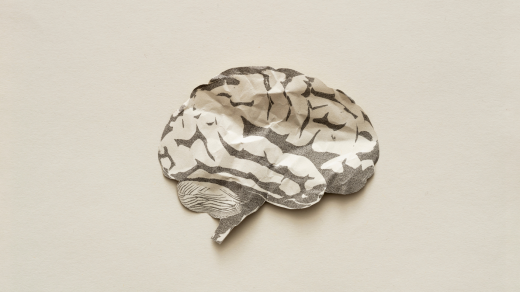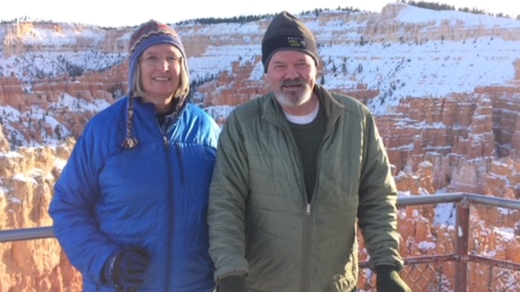The powerful secretary of the Home Affairs department, Michael Pezzullo, pushed his own ambition to become the country’s most senior bureaucrat by conducting a years-long campaign to denigrate and undermine two of Australia’s most senior public servants.
In dozens of scathing WhatsApp messages to Liberal Party operative Scott Briggs – who had a direct line to former prime ministers Malcolm Turnbull and Scott Morrison – Pezzullo accused the Department of Prime Minister and Cabinet and its head, Martin Parkinson, of being “woefully imprecise”, “befuddled”, lacking “vitality” and “missing in action”.
“I have had to bite my tongue with respect to PM&C [Prime Minister and Cabinet] ineptitude and incompetence. No project management skills or capability,” Pezzullo said in 2017. “Parkinson isn’t up to it,” he wrote in 2018.
Pezzullo also took aim at the Attorney-General’s Department and its respected secretary, Chris Moraitis, saying in 2019 the government needed to “change out the leadership”. Pezzullo suggested another man – whom he described as a friend – as “the best fit” for the job.
The government stood Pezzullo aside from his job on Monday after the revelations in The Age, the Herald and 60 Minutes that the Home Affairs secretary had sought, through a Liberal Party intermediary, to interfere in party political activities and shape the government. The Australian Public Service Commission will investigate his conduct. He will retain his $900,000-plus salary while the probe takes place.
Throughout the conversations on encrypted messaging applications WhatsApp and Signal revealed by The Age, The Sydney Morning Herald and 60 Minutes, Pezzullo painted himself as a man of action who had helped the Coalition government stop the boats. He regularly exhorted Briggs – a lobbyist and former deputy state director of the NSW Liberal Party – to pass on his feelings, concerns and perspectives to the prime minister of the day.
The Age, the Herald and 60 Minutes are not suggesting any of the exchanges are corrupt or illegal, only that they were inappropriate for a senior public servant.
Earlier this year, Parkinson delivered a major report for the Albanese government on how broken Australia’s migration regime had become. The Department of Home Affairs, which until Monday Pezzullo ran under Labor minister Clare O’Neil, is now responsible for responding to Parkinson’s conclusions. Moraitis also still occupies a senior public service role, as head of Australia’s war crimes investigative agency, the Office of the Special Investigator.
Parkinson and Moraitis both declined to comment on Pezzullo’s behaviour.

Martin Parkinson was the Department of Prime Minister and Cabinet secretary until mid-2019.Credit: Alex Ellinghausen
Former attorney general George Brandis, one of the targets of Pezzullo’s criticism, told The Age, the Herald and 60 Minutes it was “breathtaking that at a time when the government is trying to run a war against terrorism, one of the most senior public servants in the country is running his own war” against other departmental secretaries.
‘Thin capacity’
The messages began as Pezzullo was pushing in mid-2017 for the Turnbull government to create the mega-department of Home Affairs. However, he believed the Attorney-General’s Department under minister George Brandis and secretary Chris Moraitis was trying to block the idea, because under the proposed changes, the Attorney General’s Department would lose ASIO, the Australian Federal Police, the Australian Criminal Intelligence Commission and the anti-money-laundering agency Austrac to the new portfolio.
Another key problem, as Pezzullo saw it, was the Department of Prime Minister and Cabinet under Parkinson.
“Critical point of failure is PM&C thin capacity. Not a criticism – just a fact. We dwarf them in terms of firepower and scale,” he told Briggs in July 2017. “They need to tool up ASAP. By early next week this will [be] rolling so strongly that the naysaying commentators will be chewing dust.”
“Don’t think that they are being malicious – just inept and George [Brandis] is lawyering them into a state of befuddlement.”
Pezzullo assessed in another message that there was a “one in four” possibility of Labor opposing the creation of Home Affairs, but a briefing to Labor in August that year by the prime minister’s department was “woefully imprecise and underdone.”
“I’ve spoken to the PM [Malcolm Turnbull] and passed it on,” Briggs replied. “We have a war council on this on Saturday.”
Pezzullo described his campaign for Home Affairs as a “charm offensive,” telling Briggs, “I can do charm and collegiality!” He then messaged: “Perhaps give me Defence and HA [Home Affairs] at the same time (wink emoji).”
While seemingly a joke, Pezzullo’s ambition to be Department of Defence secretary was well known in Canberra. In November 2017, as Home Affairs was coming closer to reality, Pezzullo amped up his critique of the man leading the most senior public service department.
“Head down and powering on,” Pezzullo wrote to Briggs. “I have had to bite my tongue with respect to PM&C ineptitude and incompetence. No project management skills or capability. But going to war with Martin [Parkinson] would not benefit anyone and would just create grief for the PM,” he wrote.
In December 2017, Pezzullo got his wish: Home Affairs was announced, with Dutton as minister and Pezzullo as its powerful secretary.
He celebrated. Home Affairs “will be the enforcer of the bureaucracy”, he told Briggs, attaching a policeman emoji.
Public service chiefs ‘not up to it’
Amid the unpredictable politics of the Morrison-Dutton-Turnbull leadership spill of August 2018, messages reveal Pezzullo jockeying for his own advantage with Briggs, who was close to two of the candidates. In a series of late-night messages, Pezzullo suggested if Dutton, his minister, became prime minister, he might be elevated as well.
“I have calculated the scenario in my own mind,” he wrote in an 11.33pm message to Briggs. “In which case I might well be in PM&C which I would reluctantly have to accept.
“One is always honoured to serve.”
Then he offered some political advice.
“It would be crucially important that the appointment NOT be seen as a new PM putting together his senior team for winning next election. Secretary [of] PM&C must NEVER be seen in that light, for sake of our democracy.”
When Morrison ultimately won the multi-part leadership spill, Pezzullo immediately began undermining Parkinson to the new prime minister’s friend and confidant.
“We have to work on re-tooling the bureaucracy quickly. Significant portions of it would have no idea whatsoever how the PM works. That include [sic] most of PM&C, unfortunately.”
Pezzullo, who had worked with Morrison on Operation Sovereign Borders, the military-led border security operation, said he had been “coaching and guiding” Parkinson in what to expect from the new prime minister: “I have told Parkinson to prepare for OSB [Operation Sovereign Borders] times 100!!!”
Again, early on the Sunday morning after Morrison defeated Bill Shorten in the May 2019 election, Pezzullo was pushing himself forward.
“A great win,” Briggs wrote. Pezzullo replied, “Regardless of politics, I agree”.
“It’s a bubble issue but he [Morrison] has to reshape the public service. Not just personalities but structures as well. Fewer, bigger Departments. Serious scaling up and adoption of technology. The current public service leadership is not up to it.”

Chris Moraitis, former Attorney-General’s Department secretary, was the subject of Michael Pezzullo’s disparaging text messages.Credit: Alex Ellinghausen
Pezzullo went on: “We have to take this once in a generation opportunity … And sorry to say – Parkinson isn’t up to it.”
Briggs wrote that Morrison agreed.
Pezzullo responded immediately: “If that is where he is at … if he gets stuck regarding the PM&C job and he wants a driver in there, I would do it for him. It’s not a job that I’ve ever been interested in but if he needs a finisher in there I would of course answer the call.”
‘Out to lunch’
In May 2019, Parkinson told Morrison he wanted to resign as the departmental secretary and leave within 12 months. In July that year, Morrison announced a plan to reform the public service to, in his words, make it more accountable.
However, Pezzullo did not get the top job. That went instead to Morrison’s former staffer, Phil Gaetjens.
The other departmental secretary that the Home Affairs boss took aim at was Moraitis – a respected public servant who was the head of the Attorney- General’s Department between 2014 and 2021, and now heads the Office of the Special Investigator into war crimes in Afghanistan.
His attack intensified in 2018 when controversy erupted over the department’s drafting of a new bill criminalising the handling of secret information. Under the proposed law, journalists could face jail for receiving leaked documents.
“The espionage and treason Bill is poorly drafted and the Government should cut its losses,” Pezzullo insisted to Briggs. “Don’t trust anything served up by AGD – i [sic] don’t!”
“Just between you and I and NOT for discussion with the PM or others, when this was being developed I reminded and warned Moraitis about the grief encountered by [then Prime Minister Paul] Keating in 1995 when he tried to do similar,” Pezzullo wrote.
Criminalising journalists was fine, he said, but “Stumbling into it via espionage and treason legislation is incompetence of the highest order.”
“Someone needs to hang for that … It is simply unacceptable. If my Department had messed up that badly, the entire Canberra establishment would have piled in on me, and in any event honour would have dictated that I offer my resignation to the Prime Minister.”
The following year he said the Attorney-General’s Department was “out to lunch” and would not be fixed “until you change out the leadership”.
He pushed the credentials of the then head of Finance, David Fredericks, saying he was “sharp and a fixer”.
“He is a friend by way of disclosure”.
Cut through the noise of federal politics with news, views and expert analysis from Jacqueline Maley. Subscribers can sign up to our weekly Inside Politics newsletter here.



